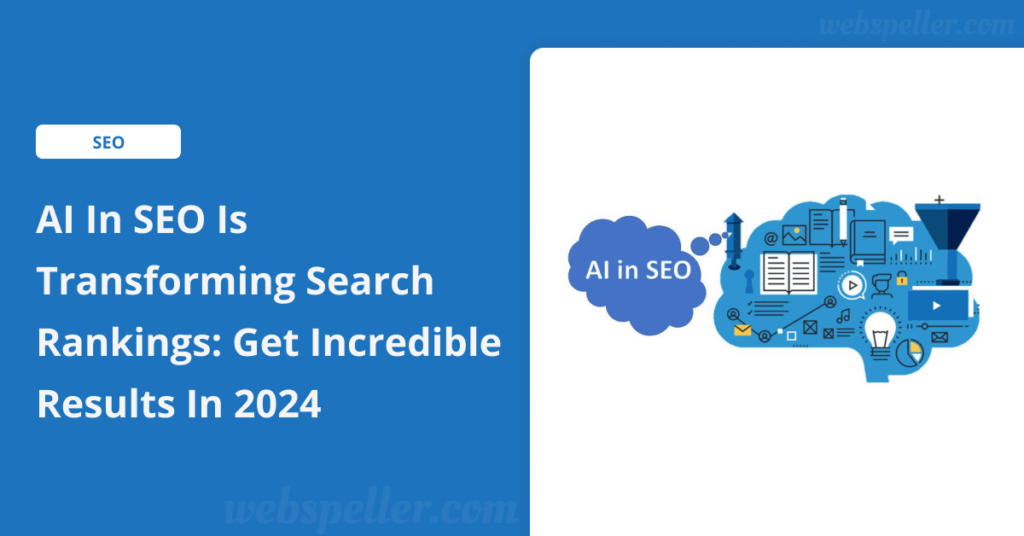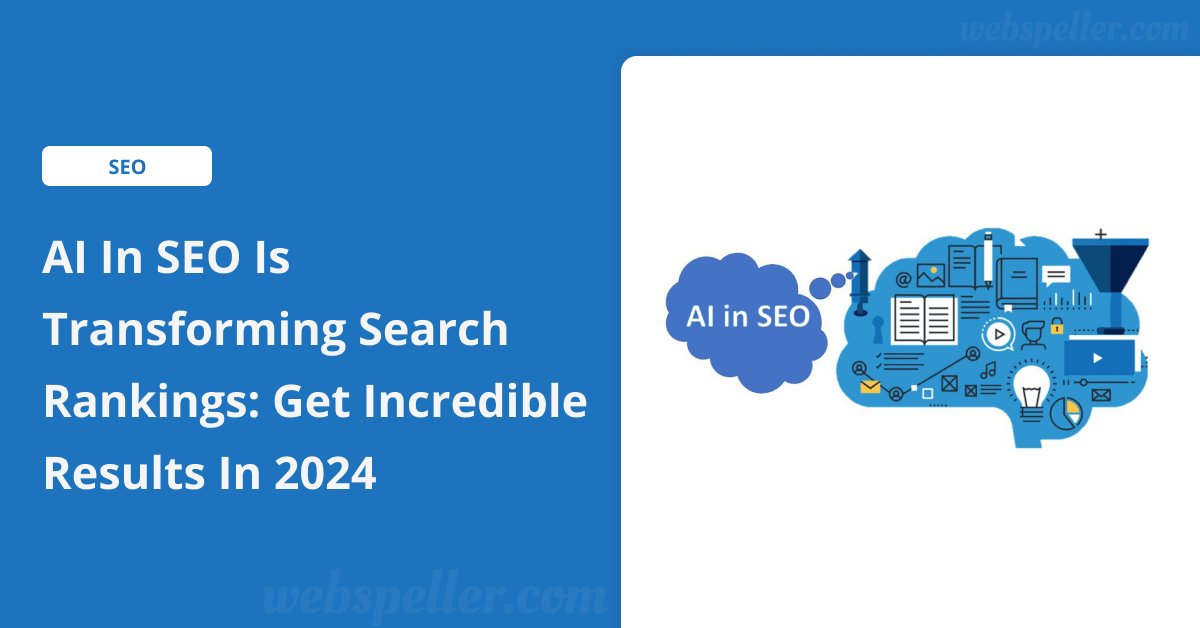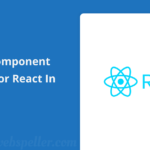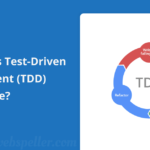Table of Contents
Introduction
Overview of AI’s Impact on SEO
AI in SEO has fundamentally transformed how digital marketers approach search engine optimization. With AI-powered tools like Google’s RankBrain and MUM, search engines are becoming more sophisticated at interpreting user intent, making it necessary for websites to deliver more relevant and high-quality content. AI enhances every aspect of SEO, from keyword research to content creation, link building, and even technical SEO tasks like website audits. By automating repetitive tasks and providing deep insights, AI allows SEO professionals to focus on more strategic initiatives, ultimately leading to better rankings and improved user experiences.

Why AI is Critical for Modern SEO Strategies in 2024
In 2024, AI is indispensable for modern SEO strategies. Search engines are constantly updating their algorithms to prioritize user experience, and AI-driven tools offer the ability to analyze massive amounts of data in real-time. This not only helps identify new SEO opportunities but also ensures quicker adaptation to changes in ranking factors. AI’s ability to personalize content for specific user needs, optimize for voice search, and analyze competitors’ strategies gives businesses a competitive edge. Incorporating AI into SEO strategies in 2024 is key to staying relevant and visible in an increasingly competitive digital environment.
Understanding AI in SEO
What is AI in SEO?
AI in SEO refers to using artificial intelligence technologies to automate, enhance, and optimize various elements of search engine optimization. AI-powered tools analyze large sets of data to uncover patterns, predict trends, and recommend actionable strategies that improve website rankings on search engine results pages (SERPs). From content creation to keyword research and technical SEO, AI helps streamline tasks, making SEO efforts more efficient and precise. It enables smarter decision-making by providing deeper insights into user behavior, search intent, and algorithmic changes.
How Search Engines Use AI: Google’s RankBrain, BERT, and MUM
Search engines, particularly Google, have integrated AI into their algorithms to deliver better, more accurate search results. Here are three key AI-powered systems that Google uses:
- RankBrain: Introduced in 2015, RankBrain is Google’s machine learning system designed to better understand user queries. It interprets words and phrases, identifies user intent, and adjusts rankings based on search patterns, especially for previously unseen queries.
- BERT (Bidirectional Encoder Representations from Transformers): BERT, introduced in 2019, helps Google better understand the context of words in search queries. This natural language processing model reads queries in a way similar to how humans do, focusing on the entire sentence rather than just individual keywords. It improves search results, particularly for complex, conversational, or long-tail queries.
- MUM (Multitask Unified Model): Launched in 2021, MUM takes AI capabilities even further by understanding not only language but also the context and intent behind search queries. MUM can process information across different formats (text, video, images) and languages, providing highly accurate and contextually relevant search results. It’s designed to answer complex, multi-step questions more efficiently.
Key Benefits of AI-Driven SEO
The integration of AI in SEO offers numerous benefits, including:
- Improved Keyword Research and Content Optimization: AI-powered tools like SEMrush, Clearscope, and MarketMuse analyze search trends and provide precise keyword suggestions, content gaps, and optimization tips to improve relevance and ranking potential.
- Enhanced User Experience (UX): AI helps personalize website experiences based on user behavior, increasing engagement and reducing bounce rates. This, in turn, improves SEO rankings as search engines prioritize sites that offer a seamless and relevant experience.
- Better Understanding of Search Intent: With AI models like RankBrain and BERT, search engines now focus on the intent behind queries rather than just matching keywords. This means that AI-driven SEO strategies can be more tailored to what users are truly searching for, leading to more accurate targeting and higher-quality traffic.
- Faster, More Efficient Analysis: AI tools can process vast amounts of data in real-time, giving businesses quick insights into performance metrics, competitor analysis, and algorithm updates. This helps SEO professionals make data-driven decisions faster and adapt to changes in the SEO landscape.
- Automated SEO Tasks: AI can automate time-consuming SEO tasks such as site audits, backlink analysis, and technical SEO fixes. This not only saves time but also ensures that the website is always optimized for the latest best practices.
By leveraging AI, businesses can gain a significant competitive advantage, staying ahead of SEO trends and algorithm changes, while offering a better user experience that enhances both rankings and traffic.
AI Tools Transforming SEO in 2024
As we move into 2024, the landscape of SEO is increasingly being shaped by artificial intelligence. AI tools are revolutionizing the way marketers approach search engine optimization, offering advanced capabilities that enhance efficiency and effectiveness. Here are some key categories of AI tools that are transforming SEO this year:
AI-Powered Keyword Research Tools (e.g., Clearscope, SEMrush)
Keyword research is foundational to SEO success, and AI-powered tools like Clearscope and SEMrush are leading the charge in making this process more intelligent and streamlined.
- Clearscope utilizes AI to analyze top-performing content for specific keywords, providing insights on related terms and phrases that should be included to enhance relevance. This helps content creators craft articles that are not only keyword-rich but also contextually aligned with what users are searching for.
- SEMrush offers a comprehensive suite of features for keyword research, competitor analysis, and SERP tracking. Its AI algorithms can identify keyword opportunities and suggest long-tail keywords that have the potential to drive targeted traffic, making it easier for marketers to develop effective content strategies.
AI Content Optimization Tools (e.g., Surfer SEO, MarketMuse)
Content optimization is essential for ensuring that written material is engaging and ranks well. Tools like Surfer SEO and MarketMuse use AI to assist in this process.
- Surfer SEO analyzes the top-ranking pages for a given keyword and provides actionable recommendations on how to optimize content. It assesses factors such as keyword density, content structure, and backlinks, allowing users to create data-driven content that meets search engine criteria.
- MarketMuse employs AI to evaluate content quality and relevance. It helps users identify content gaps and suggests topics that can enhance a site’s authority. By using AI to guide content creation, marketers can ensure that their articles are not only optimized for search engines but also valuable to readers.
AI Link Building Tools (e.g., Link Hunter, Respona)
Link building remains a crucial component of SEO, and AI-driven tools like Link Hunter and Respona are transforming how this is approached.
- Link Hunter automates the link-building process by identifying high-quality websites that are relevant to a user’s niche. It streamlines outreach efforts by providing templates and tracking responses, making it easier for marketers to secure valuable backlinks.
- Respona combines AI with traditional outreach strategies, helping users discover link-building opportunities through a comprehensive database. It assists in crafting personalized outreach emails, significantly increasing the chances of acquiring backlinks from reputable sources.
AI-Driven Analytics Tools (e.g., Google Analytics 4, HubSpot)
Understanding website performance and user behavior is vital for effective SEO, and AI-driven analytics tools like Google Analytics 4 and HubSpot are at the forefront of this analysis.
- Google Analytics 4 utilizes machine learning to provide predictive insights and deeper understanding of user interactions. It helps marketers track key metrics and understand the impact of their SEO strategies, offering suggestions for improvement based on data trends.
- HubSpot features AI capabilities that analyze marketing performance across various channels. Its analytics tools provide comprehensive reports on website traffic, user engagement, and lead generation, enabling businesses to fine-tune their SEO strategies based on real-time data.
In 2024, these AI tools are not just enhancements; they are essential components of a successful SEO strategy. By leveraging the power of artificial intelligence, marketers can optimize their efforts, improve user experience, and drive sustainable traffic growth.
AI Techniques for Better SEO in 2024
As artificial intelligence continues to evolve, its application in SEO strategies is becoming more sophisticated. In 2024, leveraging AI techniques can significantly enhance your SEO efforts. Here are key techniques to consider:
Content Personalization and User Intent
Content personalization is increasingly vital for engaging users and improving SEO performance. AI algorithms analyze user behavior, preferences, and interactions to tailor content that resonates with specific audiences. By understanding user intent—what users are looking for—marketers can create more relevant content. For example, AI tools can segment users based on demographics or past interactions, allowing for personalized recommendations and targeted content delivery. This not only improves user satisfaction but also increases dwell time and reduces bounce rates, which are positive signals for search engines.
AI-Powered Content Creation and Optimization
AI-powered content creation tools are revolutionizing how content is generated and optimized. Tools like Jasper and Copy.ai can assist in drafting high-quality articles, social media posts, and marketing copy based on specific guidelines and keywords. Additionally, AI optimization tools like Surfer SEO analyze top-ranking content and provide recommendations for improving keyword usage, structure, and readability. By automating parts of the content creation process and ensuring that content is optimized for search engines, businesses can save time and resources while producing engaging, effective material.
Voice Search Optimization with AI
With the rise of voice-activated devices and digital assistants, optimizing for voice search is more important than ever. AI plays a crucial role in understanding natural language queries and conversational phrases that users employ when speaking. Techniques for optimizing for voice search include focusing on long-tail keywords, creating concise answers to common questions, and utilizing structured data to help search engines understand the content context. By prioritizing voice search optimization, businesses can reach users who prefer voice queries, ultimately driving more organic traffic.
Leveraging AI for Visual and Video SEO
As visual and video content becomes more prominent, AI can enhance SEO strategies for these formats. AI tools can analyze images and videos to identify relevant tags, descriptions, and keywords, ensuring that visual content is indexed properly by search engines. Additionally, AI-driven platforms like TubeBuddy provide insights into video performance and optimization opportunities on platforms like YouTube. By utilizing AI for visual and video SEO, marketers can improve discoverability, increase engagement, and drive traffic to their websites.
Predictive Analytics for SEO Strategy
Predictive analytics harnesses the power of AI to analyze historical data and forecast future trends, enabling businesses to make informed SEO decisions. By examining patterns in user behavior, keyword performance, and content engagement, AI can help identify emerging trends and opportunities. For example, businesses can anticipate which keywords are likely to gain traction based on seasonal changes or market shifts, allowing them to adjust their strategies proactively. Implementing predictive analytics can lead to more effective content planning, enhanced targeting, and ultimately improved SEO performance.
In 2024, embracing these AI techniques will be essential for businesses looking to enhance their SEO strategies. By personalizing content, optimizing for new search formats, and leveraging data-driven insights, marketers can create more effective and engaging experiences for users, leading to better search engine rankings and sustained traffic growth.
Best Practices for Implementing AI in Your SEO Strategy
As AI technology continues to advance, incorporating it into your SEO strategy can significantly enhance your effectiveness and efficiency. Here are some best practices to follow for successful implementation:
Setting Clear Goals and Metrics
Before diving into AI tools and techniques, it’s crucial to establish clear goals and metrics for your SEO strategy. Define what you want to achieve with AI—whether it’s increasing organic traffic, improving conversion rates, or enhancing user engagement. Setting specific, measurable, achievable, relevant, and time-bound (SMART) goals will provide a clear direction and enable you to track progress effectively.
Once your goals are defined, identify the key performance indicators (KPIs) that will help you measure success. This might include metrics like keyword rankings, bounce rates, average session duration, and conversion rates. By continuously monitoring these metrics, you can assess the impact of AI on your SEO efforts and make data-driven adjustments as needed.
Choosing the Right AI Tools for Your Needs
With a plethora of AI tools available for SEO, choosing the right ones for your specific needs is essential. Start by assessing the areas of your SEO strategy that could benefit most from AI—whether it’s keyword research, content optimization, link building, or analytics.
Research and compare various AI tools, considering factors such as features, user reviews, pricing, and integration capabilities with your existing systems. Look for tools that offer intuitive interfaces, robust data analysis capabilities, and the ability to scale as your business grows. Some popular options include SEMrush for keyword research, Surfer SEO for content optimization, and Google Analytics 4 for performance tracking.
By selecting tools that align with your goals and workflows, you can maximize the effectiveness of your AI implementation.
Balancing AI with Human Creativity
While AI can automate and enhance many aspects of SEO, it’s essential to balance AI-driven insights with human creativity. AI excels at data analysis and pattern recognition, but it lacks the nuanced understanding of human emotions, cultural contexts, and storytelling that can make content truly resonate with audiences.
When creating content, use AI tools to guide your research and optimization but infuse it with a human touch. Craft engaging narratives, address user pain points, and incorporate unique perspectives that only you can provide. Additionally, involve your team in the brainstorming process, leveraging diverse ideas and creativity to produce high-quality, compelling content.
By combining the analytical strengths of AI with the imaginative capabilities of human creativity, you can create a well-rounded SEO strategy that stands out in a competitive digital landscape.
In summary, implementing AI in your SEO strategy requires clear goal-setting, careful selection of tools, and a commitment to blending technology with human ingenuity. By following these best practices, you can leverage the power of AI to drive better results and elevate your overall SEO efforts.
Challenges and Limitations of AI in SEO
While AI offers transformative potential for SEO strategies, it also presents several challenges and limitations that businesses must navigate. Understanding these issues is crucial for effective implementation and maximizing the benefits of AI.
Overreliance on AI and the Importance of Human Input
One of the primary challenges in using AI for SEO is the risk of overreliance on automated tools. While AI excels at data analysis and process automation, it lacks the nuanced understanding of context, culture, and human emotion that drives meaningful content. An over-dependence on AI can lead to generic content that fails to resonate with audiences.
Human input is vital for interpreting AI-generated insights and ensuring that the content reflects brand voice, values, and creativity. Marketers should leverage AI as a supportive tool rather than a replacement for human intuition and expertise. Balancing data-driven insights with human creativity and judgment can result in more engaging and relevant content that connects with users on a deeper level.
Ethical Concerns in AI-Driven SEO
The rise of AI in SEO also raises several ethical concerns that businesses must consider. One major issue is the potential for bias in AI algorithms. If the data used to train AI models is biased, the resulting outputs can perpetuate stereotypes or unfairly disadvantage certain groups. This can lead to unethical marketing practices and damage a brand’s reputation.
Additionally, the use of AI-generated content can blur the lines of originality and authenticity. As businesses increasingly rely on AI for content creation, questions arise about authorship and intellectual property. Marketers must ensure that their content is original, properly attributed, and aligned with ethical standards.
Transparency is another critical concern. Brands should disclose when AI tools are used in their SEO strategies to maintain trust with their audience. Being open about the use of AI can enhance credibility and foster a positive relationship with users.
AI and the Future of Search Algorithm Updates
As AI technologies continue to evolve, they will play an increasingly significant role in shaping search engine algorithms. Search engines are already utilizing machine learning models to improve their understanding of user intent and content relevance. This trend is expected to accelerate, leading to more sophisticated algorithms that prioritize high-quality, relevant content.
In the future, search algorithm updates may focus on enhancing user experience, incorporating AI-driven insights to assess content quality, engagement, and authority. Businesses that leverage AI effectively will be better positioned to adapt to these changes and maintain or improve their search rankings.
However, staying ahead of algorithm updates will require continuous learning and adaptation. Marketers must remain vigilant and agile, using AI tools to monitor trends and adjust strategies in response to shifting algorithms. Those who can effectively integrate AI into their SEO practices will likely thrive in this evolving landscape.
In summary, while AI offers powerful tools for enhancing SEO strategies, it is essential to recognize the challenges and limitations that accompany its use. By balancing AI capabilities with human insight, addressing ethical concerns, and staying informed about the future of search algorithms, businesses can harness the full potential of AI in their SEO efforts.
Conclusion
The future of AI in SEO is poised for significant growth and innovation in the coming years. As search engines continue to evolve and user behaviors shift, AI technologies will play a pivotal role in shaping SEO strategies. Expect to see more advanced algorithms that enhance content relevance, improve user experience, and personalize search results. Businesses that embrace these changes will be better positioned to thrive in an increasingly competitive digital landscape.
Moreover, the integration of AI-powered tools into SEO practices will empower marketers to make data-driven decisions, optimize their content strategies, and adapt quickly to algorithm updates. However, it’s crucial to maintain a balance between AI and human creativity, ensuring that content remains authentic and resonates with audiences.
In summary, harnessing AI in SEO for success requires a forward-thinking approach that embraces technological advancements while valuing the human touch. By staying informed about emerging trends and continuously adapting strategies, businesses can leverage AI to enhance their visibility, engagement, and overall performance in search engines. The journey ahead promises to be exciting and transformative for those willing to innovate and evolve.
What is AI in SEO and how does it work?
AI in SEO refers to the use of artificial intelligence technologies to enhance and optimize search engine strategies. It analyzes user behavior, search patterns, and content performance to improve rankings and drive organic traffic.
What are some popular AI-powered tools for SEO?
Popular AI-powered tools for SEO include SEMrush for keyword research, Surfer SEO for content optimization, and Google Analytics 4 for performance tracking. These tools help streamline various aspects of SEO, making strategies more effective.
How can AI improve content creation for SEO?
AI can enhance content creation by analyzing top-performing articles and providing insights on keywords, structure, and user intent. Tools like Jasper and Copy.ai assist in generating high-quality, optimized content that aligns with SEO best practices.
Is AI replacing human input in SEO?
While AI significantly enhances SEO strategies, it should not replace human input. Balancing AI capabilities with creativity and intuition is crucial for creating authentic and engaging content that resonates with audiences.


